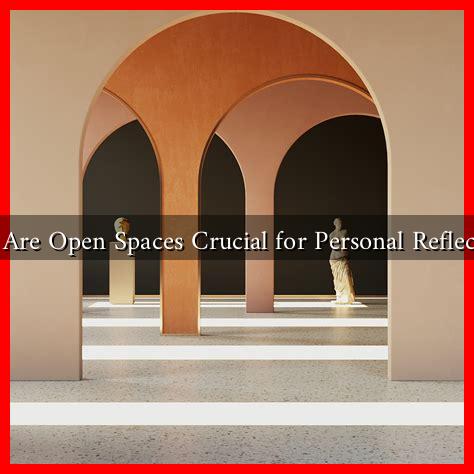-
Table of Contents
- Why Are Open Spaces Crucial for Personal Reflection?
- The Psychological Benefits of Open Spaces
- Open Spaces as Catalysts for Reflection
- Case Studies: The Impact of Open Spaces on Personal Reflection
- Statistics Highlighting the Importance of Open Spaces
- Conclusion: Embracing Open Spaces for Personal Growth
Why Are Open Spaces Crucial for Personal Reflection?
In an increasingly fast-paced world, the importance of personal reflection cannot be overstated. Open spaces—parks, gardens, and natural landscapes—play a vital role in facilitating this introspective process. This article explores the significance of open spaces for personal reflection, supported by research, examples, and statistics.
The Psychological Benefits of Open Spaces
Open spaces provide a unique environment that fosters mental well-being. Numerous studies have shown that spending time in nature can lead to reduced stress, improved mood, and enhanced cognitive function. According to a study published in the journal Environmental Science & Technology, individuals who spent at least 120 minutes a week in nature reported significantly better health and well-being than those who did not.
- Stress Reduction: Natural environments have been shown to lower cortisol levels, the hormone associated with stress.
- Enhanced Creativity: A study by the University of Utah found that spending time in nature can boost creative problem-solving by up to 50%.
- Improved Focus: The Attention Restoration Theory suggests that natural settings help restore depleted attention capacities, allowing for better focus and clarity.
Open Spaces as Catalysts for Reflection
Open spaces serve as a backdrop for personal reflection, providing a tranquil setting that encourages deep thinking. The absence of urban noise and distractions allows individuals to engage in self-exploration and contemplation. Here are some ways open spaces facilitate this process:
- Isolation from Distractions: Open spaces often provide a break from the hustle and bustle of daily life, allowing individuals to disconnect from technology and social obligations.
- Connection with Nature: The natural world has a calming effect, which can help individuals process their thoughts and emotions more effectively.
- Physical Activity: Engaging in activities like walking or jogging in open spaces can stimulate endorphin release, further enhancing mood and promoting reflective thinking.
Case Studies: The Impact of Open Spaces on Personal Reflection
Several case studies illustrate the profound impact of open spaces on personal reflection:
- Central Park, New York City: A study conducted by the New York City Department of Parks and Recreation found that visitors to Central Park reported feeling more relaxed and reflective after spending time in the park compared to those who remained in urban settings.
- Japanese Zen Gardens: These meticulously designed spaces encourage mindfulness and meditation, allowing individuals to reflect on their thoughts and feelings in a serene environment.
- Community Gardens: Research from the University of California found that community gardens not only provide fresh produce but also serve as spaces for personal reflection and community bonding.
Statistics Highlighting the Importance of Open Spaces
Statistics further underscore the significance of open spaces for personal reflection:
- According to the World Health Organization, urban green spaces can reduce the risk of mental health disorders by up to 30%.
- A survey by the American Psychological Association found that 61% of respondents felt that spending time outdoors helped them cope with stress during the COVID-19 pandemic.
Conclusion: Embracing Open Spaces for Personal Growth
Open spaces are not merely recreational areas; they are essential environments for personal reflection and growth. The psychological benefits, coupled with the unique opportunities for introspection they provide, make them invaluable in our quest for self-understanding. As we navigate the complexities of modern life, embracing open spaces can lead to enhanced mental well-being and a deeper connection with ourselves. By prioritizing time in these natural settings, we can cultivate a more reflective and fulfilling life.

